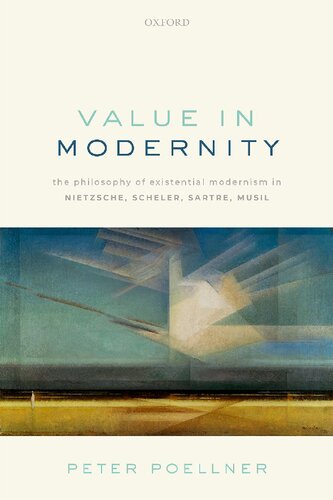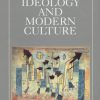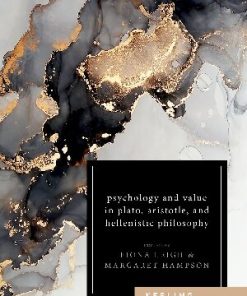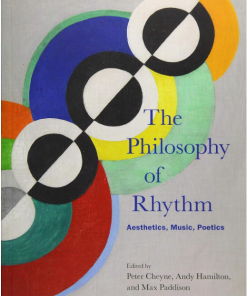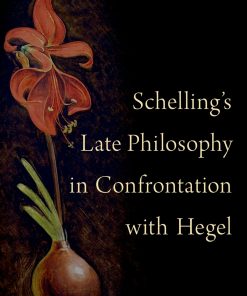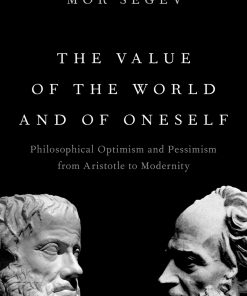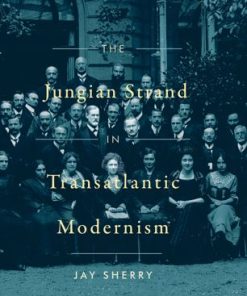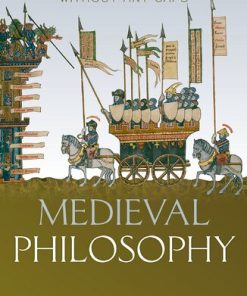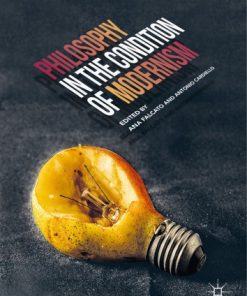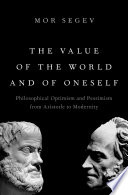Value in Modernity: The Philosophy of Existential Modernism in Nietzsche, Scheler, Sartre, Musil Peter Poellner
$50.00 Original price was: $50.00.$25.00Current price is: $25.00.
Value in Modernity: The Philosophy of Existential Modernism in Nietzsche, Scheler, Sartre, Musil Peter Poellner – Ebook Instant Download/Delivery ISBN(s): 9780192849731,0192849735, 9780192666567, 0192666568
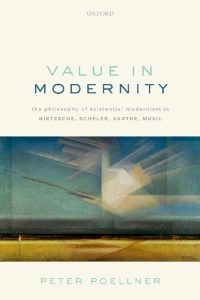
Product details:
- ISBN 10: 0192666568
- ISBN 13: 9780192666567
- Author: Peter Poellner
Value in Modernity examines a historical paradigm in ethics that has hitherto not been identified as such: existential modernism. Peter Poellner discusses the central claims of this paradigm through detailed examination of the thought of four of its main exponents: Friedrich Nietzsche, Max Scheler, Jean-Paul Sartre, and Robert Musil. In the case of Nietzsche and Sartre, Poellner offers novel interpretations, reconstructing lines of thought in their work that have usually been neglected. He also offers a new assessment of Scheler’s subtle phenomenological version of affective value intuitionism, which is a crucial influence on Sartre’s existentialism but has so far enjoyed virtually no reception in an anglophone context. Musil’s philosophical novel The Man without Qualities is interpreted as contributing a highly original version of ethical perfectionism to the existential modernist paradigm. While Musil’s thought on emotions and moods has begun to receive philosophical recognition in recent years, the significance of the philosophical core of his seminal work has so far not been fully appreciated. In Poellner’s interpretation, what we find in the existential modernists is an approach in ethical philosophy that combines a qualified form of affective value intuitionism and a kind of ethical perfectionism. This book reconstructs and defends a version of this approach that integrates elements drawn from each of these thinkers, supplemented by an original elaboration of ideas only implicit in some of them.
Table contents:
1. How to Redeem Nature: Early Nietzsche on Overcoming the ‘Tyranny of the Real’
2. Later Nietzsche: Value, Affect, and Objectivity
3. Nietzsche’s Evaluative Practice: Ethics and Aesthetics
4. The Scheler–Sartre View of Emotion and Value: Defending Qualified Affective Perceptualism
5. Indistinctness in Value Experience
6. Distorted Value Experience and Intentional Self-Deception
7. Freedom, Ethics, and Absolute Value: Early Sartre’s Two Philosophies
8. Modernity, Cultural Discontent, and the Experience of Wholeness: Robert Musil’s The Man without Qualities
People also search:
values in modern society
what is modernity in history
examples of modernity in history
modern values in society
modernity in china
You may also like…
Politics & Philosophy - Ancient & Medieval Philosophy
Politics & Philosophy - European & American Philosophy
Schelling’s Late Philosophy in Confrontation with Hegel Peter Dews
Politics & Philosophy - General & Miscellaneous Philosophy
Politics & Philosophy - Anthropology
Politics & Philosophy - Ancient & Medieval Philosophy
Medieval Philosophy: A History Of Philosophy Without Any Gaps 1st Edition Peter Adamson
Poetry - American Poetry
Politics & Philosophy - Philosophical Positions & Movements


